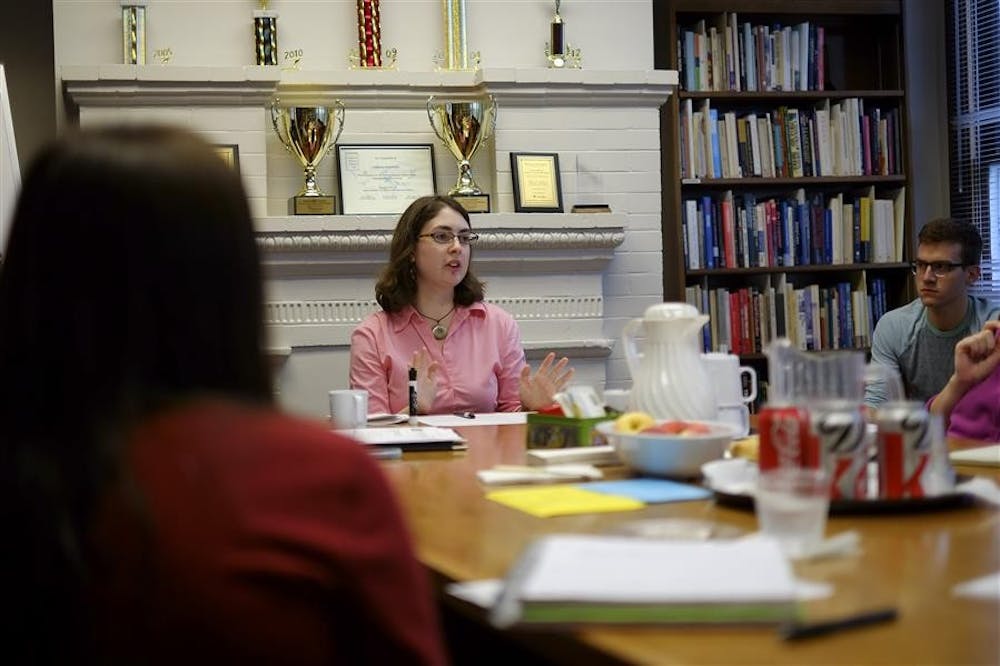A group of IU students and staff gathered Tuesday to evaluate college campus LGBTQ centers, and whether they should offer information on gay-conversion therapy resources.
In response to an article published in George Mason University’s student news outlet, Fourth Estate, the group met to discuss the ethics of offering similar resources at IU’s Gay, Lesbian, Bisexual and Transgender Student Support Services office.
The meeting, which took place at the Poynter Center on Third St., served as a kick-off for the new Ethics Over Tea discussion series and was facilitated by Emma Young, program coordinator at the Poynter Center.
Gay-conversion therapy is based on the assumption that homosexuality is either unnatural or sinful, Young said. Supporters of the therapy believe counseling can change an individual’s sexual orientation from gay to straight.
Doug Bauder, director of the GLBTSSS, said he saw no value in offering gay-conversion therapy information at IU’s center.
“We’re a pro-gay organization, so to suggest that we should include information demeaning to people who identify as gay makes no sense to me,” he said.
Voice of the Voiceless, an organization that advocates for the rights of ex-gay individuals, published a press release in early October arguing that all LGBTQ resource centers at state-run universities should be required to provide information about all LGBT viewpoints.
Bauder said he checked with legal services at the University and determined his refusal to display gay-conversion therapy resources did not interfere with the office’s mission statement.
“The mission of IU’s GLBTSSS office is to provide education on LGBT issues and provide support for LGBT individuals,” he said.
The discussion group weighed the pros and cons of offering resources at IU’s GLBTSSS.
IU graduate Maggie Oates attended said she thinks there should be gay-conversion information available to students who request it.
“I can definitely see someone being uncomfortable in their own skin and sexuality,” she said. “If they are requesting information in their own free will, we need to provide it to them.”
The event was co-sponsored by the Hutton Honors College and the Wells
Scholars Program.
The discussion groups will meet twice a month, with special Ethics for Breakfast events taking place at the Hutton Honors College.
“My goal is to create a welcoming and engaging conversation about breaking news that is less time-intensive for students,” she said.
Young said she created the group so students can analyze issues in today’s world that affect them.
“Students can use the lessons they learn here for the rest of their lives and careers.”
Group discusses gay-conversion therapy

Get stories like this in your inbox
Subscribe





